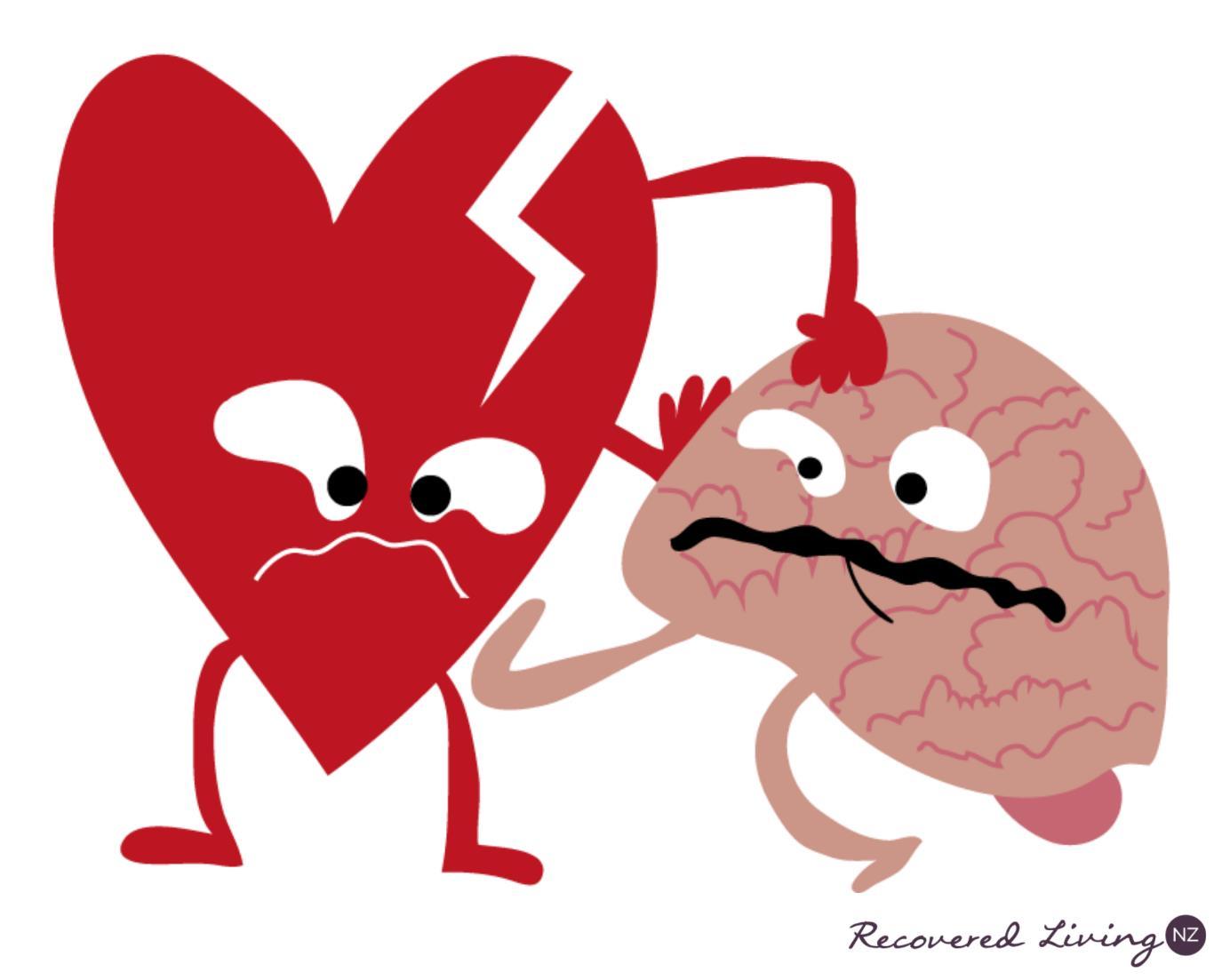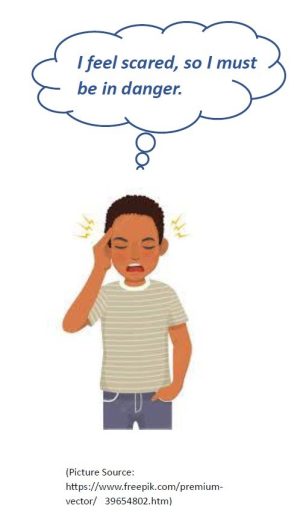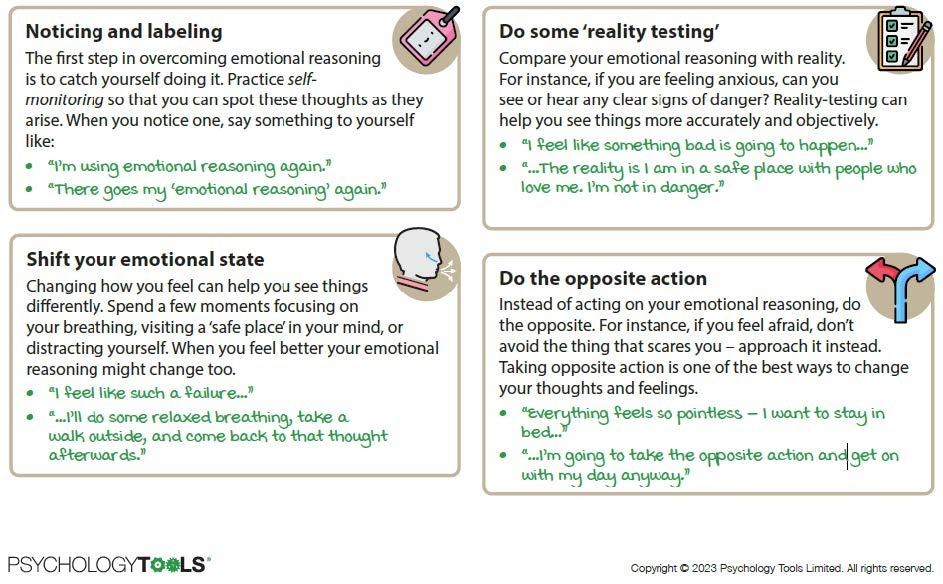Unhelpful Thinking Styles: Emotional Reasoning

(Picture source: https://recoveredlivingnz.com/emotional_reasoning_eating_disorder)
This segment follows on with our Unhelpful Thinking Styles series explaining how our brains will often make instant gut reactions based on faulty logic, or ‘short cuts’, resulting in us thinking things that are not completely accurate. This may, in turn, lead to painful emotions, increased anxiety, and may even prevent us from engaging in the things that truly matter to us. When one considers the teenage brain and how teens process information with a lot of input from the amygdala, which is the emotional part of the brain, this specific thinking trap is a very relevant consideration.
Emotional reasoning is basically mistaking feelings for facts, therefore thinking “I feel it, so it must be true” or “I feel, therefore it is”. Rather than looking at the facts of what is happening, we look to our gut feelings about a situation to guide our interpretations of it, therefore taking our emotions as being evidence for the truth. Your child might feel anxious and interpret it as school being a dangerous place, or feel low in mood and interpret it as school being the worst place to be.
Examples of Emotional Reasoning






Supporting your Child
- It is of the utmost importance not to disregard your child or teen’s emotions when you recognise this type of thinking in them.
- When they are feeling overwhelmed by emotion, it might be impossible for them to think logically and factually about what’s really going on.
- Co-regulation can occur through validating their emotions, which can in turn lead to an increased ability for them to access their prefrontal cortex, which is the ‘thinking’ part of their brain.
- Discuss emotional reasoning with them when they are in a calm state and ready to learn. Talk about the brain’s inability to sometimes distinguish between fact and opinion.
- Remind them that our thoughts are not always true.
- Share with them some examples of times when you yourself were struggling with unhelpful and irrational automatic thoughts.
- Share around the dinner table certain times when each of you might have engaged in emotional reasoning throughout the day.
- Remind them to look for the evidence the next time they are feeling overwhelmed.
- Discuss the pros and cons of believing our thoughts as facts, and how it could get in the way of the things that are truly important to us.
- Encourage your child to speak to a trusted adult, teacher or Kids Helpline when they experience overwhelming emotions. (Phone: 1800 55 1800 or website http://www.kidshelpline.com.au)
Here are some more suggestions on managing emotional reasoning from Psychology Tools:

Until next time,
Marisa Smit
CGS Psychologist

 1421
1421











